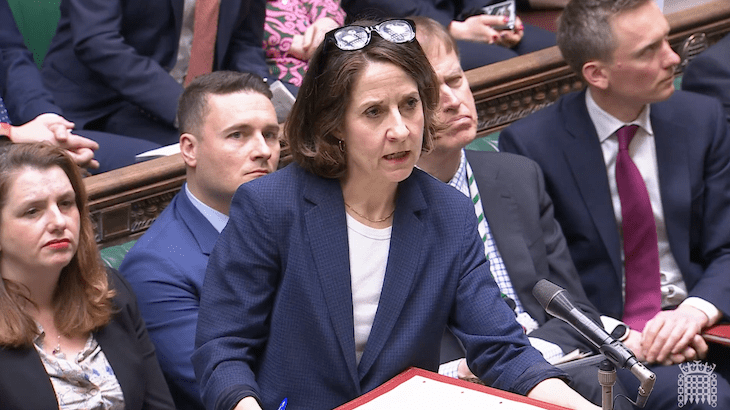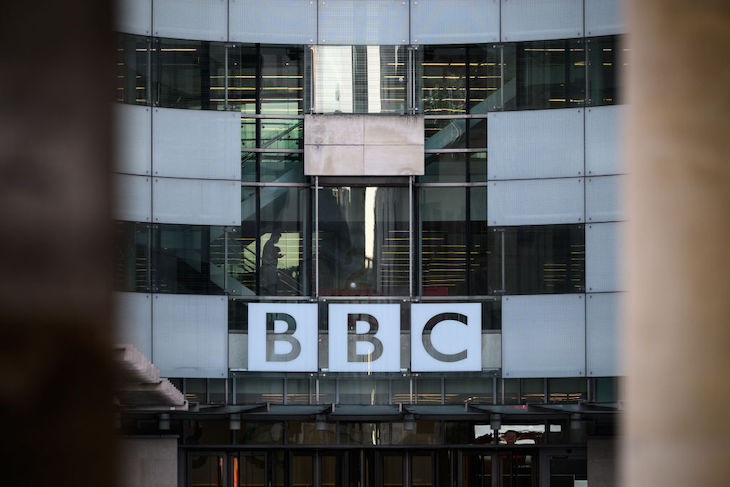To underline that there was government agreement on the welfare cuts and reforms she was announcing, Liz Kendall had Keir Starmer, Angela Rayner, Ed Miliband and a slew of other cabinet and senior ministers sitting behind her in the Commons. The Work and Pensions Secretary announced ‘decisive action’ on the benefits system, which she said was ‘failing the very people it is supposed to help and holding our country back’.
That ‘decisive action’ was a reform package that Kendall said was expected to save over £5 billion in 2029/30. It included restricting the eligibility for the Personal Independence Payment (PIP) so that only those who have the highest level of disability can claim the benefit. A claimant will need to score a minimum of four points in at least one activity to qualify for the daily living element of PIP, with a review of the PIP assessment process led by Social Security Minister Stephen Timms.
Kendall sweetened Labour backbenchers for these big changes by first telling the Commons that Labour was dropping a number of reforms that had been proposed by the Conservatives. She said that the government would not bring in vouchers for disability benefit, or freeze PIP. Labour MPs did cheer at that, but they were quiet for most of the statement.
Much of Kendall’s speech had been reported before, either through leaks or briefing. But one of the new lines was that under-22s would not be eligible for the health top up of Universal Credit (UC). The minister said the savings from this would be ‘reinvested into work support and training opportunities so every young person is earning or learning and on a pathway to success’. UC itself will be cut at the top rate, with the full details of that cut coming out next week. The green paper will also consult on a ‘major reform of contributory benefits, merging contributions-based Jobseeker’s Allowance and Employment Support Allowance into a new time-limited unemployment insurance paid at a higher rate without having to prove you cannot work in order to get it’. The Work Capability Assessment, long a bone of contention for many on the left – and beyond – is being scrapped in 2028. Additional financial support for health conditions in universal credit will be determined through the PIP assessment.
There will also be a new ‘right to try’: legislation which will mean people can try to go back into work without fearing it will put their benefits at risk (something our former editor, Fraser Nelson, covered in his recent Channel 4 Dispatches programme.)
The Conservative response to the statement was largely that Kendall and colleagues should have gone further, and that the Tories had left a much better legacy in the economy and on welfare than the minister was suggesting.
Shadow Work and Pensions Secretary Helen Whately told the Chamber that she and Kendall ‘agree on one thing: the welfare bill is too high: left unchecked, it will rise to £100 billion by the end of the decade’. She added that ‘spending more on sickness benefits than we do on defence is not a sign of a strong country’. But she accused Labour of not using its time in opposition to come up with proper reforms, arguing that ‘they walked into the department with empty notebooks’.
As for the backbench response, it wasn’t furious, but neither was it enthusiastic. There were a good few Labour MPs who expressed concerns or asked for reassurance from Kendall. The question that clearly stung her the most came from Clive Lewis, who said his constituents, friends and family were ‘very angry about this and they do not think this is the kind of action that a Labour government takes’, and said he wanted ‘her department to be able to look my constituents in the eye’.
The minister sounded genuinely angry as she pointed out to him that she had ‘spent years chairing Feeding Leicester, the programme to end hunger in my city, and I know that I can look my constituents in the eye’.
Other Labour MPs saying they were worried included Debbie Abrahams, Chi Onwurah, Florence Eshalomi, John McDonnell, Mary Kelly Foy and Melanie Ward.
Abrahams is the chair of the Work and Pensions Select Committee, and pointed out that this was ‘the largest cut in social security support since 2015’. She argued that there are ‘alternative, more compassionate ways to balance the books’.
Eshalomi said it had taken her six months to navigate the system for a member of her own staff ‘in the place where we legislate’, and argued that cutting PIP wouldn’t improve things for disabled people who wanted to get into the workplace.
Kendall took care to praise her and the other MPs who were worried, inviting them into more meetings and reassuring them that there would be ample opportunity to scrutinise the reforms, including through votes on the legislation. She will have been relieved that there was not open fury in the Chamber, but neither was there that much outright praise for what the government is doing. Many Labour MPs seemed to be waiting to examine the details in the green paper and other plans. Kendall will be seeing a lot more of them over the next few weeks.








Comments